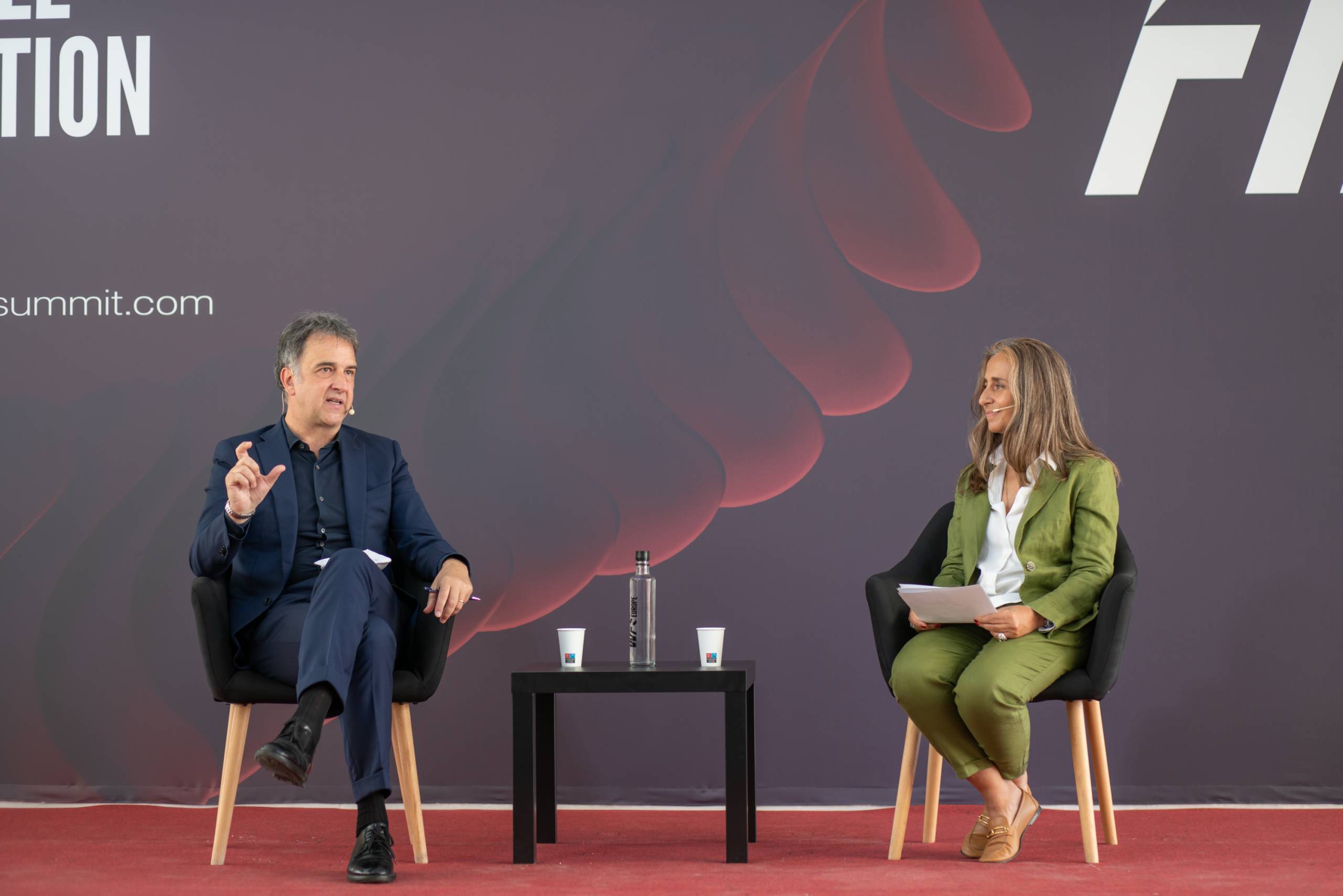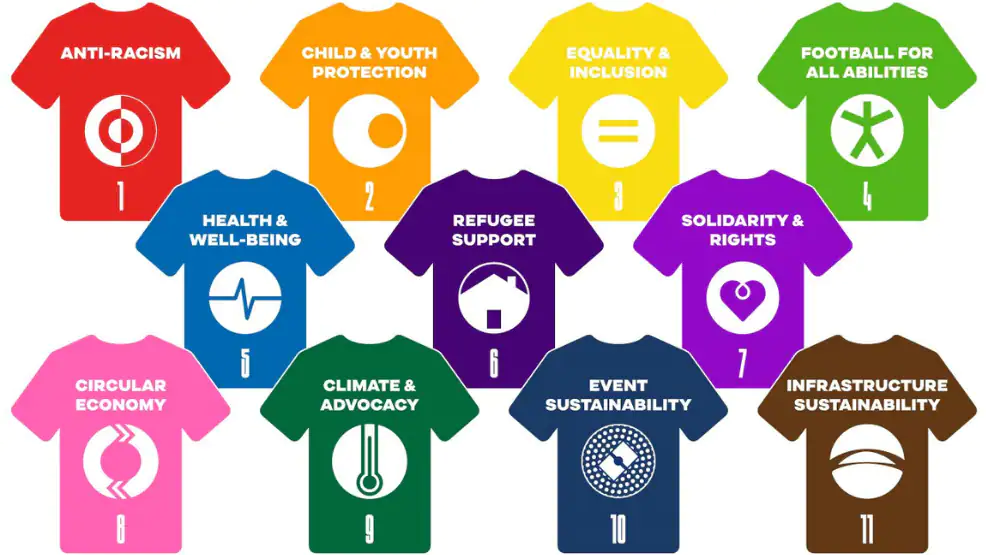World Football Summit takes a deeper dive into Football Innovation Forum and what UEFA’s Michele Uva, along with other experts, had to say on football as a medium for sustainability and innovation. This is the first of various insights to the event that will be released in the coming weeks regarding different topics. Make sure you’re subscribed to WFS Digest, our insider’s guide to the latest and most relevant thoughts and practices from within the football industry. You can subscribe to WFS Digest HERE.
“Innovation and sustainability are linked to each other. And football can work perfectly together to attain sustainability through innovation.”
This was a perfect way to kick off an excellent intervention by Michele Uva, Director of Sustainability at UEFA, during Football Innovation Forum last week. On a day in which some of the most influential leaders in the football industry shared their expertise and knowledge, Michele’s insight justifies why it made sense to inject the topic of sustainability within innovation.
Sustainability has quickly risen to the top spots of the world’s list of concerns and is becoming a core element of the strategy for countries and businesses alike. Additionally, the general population is also becoming increasingly aware of the importance of the topic and is at a point where “sustainable practices” have become a key factor before when deciding which brands can have a seat at the table. Javier Sobrino, Partner at Aser Venture and another one of the fantastic speakers we hosted at FIF22, has similar thoughts on this matter:
“Sport is one of the greatest tools from a sustainability perspective. Social impact and the relationship with fans now have to be based on the impact on those communities.”
Football, as one of the most influential industries in entertainment and overall culture, has a unique position, and perhaps also a responsibility, to use its influence to play a fundamental role in this challenge that the world is up against. Beta Maggio, Founder at U-Earth, who interviewed Michele during FIF22, highlighted the fact that younger fans look at sustainability as a source of inspiration:
????️ "UEFA is an event organiser and, thus, event sustainability is a must. We can’t go to zero carbon emission, but we have to put in place activities that can remediate these emissions."
– Michele Uva (@UEFAcom) pic.twitter.com/S3DbrVVK4e
— World Football Summit (@WFSummit) May 18, 2022
So how does a leading institution like UEFA become a key player in the game of sustainability? How are they helping the entire football industry adopt the necessary mindset? Here’s a recap of their strategy and approach to sustainability that Michele Uva shared with us last week in Sevilla.
Adopting the right mindset to embrace sustainability
As with many other great challenges, the very first step needs to include creating a correct state of mind before any steps can actually be taken. Michele said it best during his session:
“We need to work on the anticipation mindset. That is the key to setting the best strategy possible for a sustainable future of football.”
However, he recognizes that he was an outsider on the topic of sustainability at first, but once he did the correct research, consulted the experts, and understood the magnitude of the problem, he knew that immediate action was needed. Today, as Michele discussed with WFS Digest back in April, such is the importance that UEFA grants ESG practices, that “Responsibility” has been added as the 5th pillar of their 5-year strategy, together with Football, Trust, Competitiveness, and Prosperity.
Beta Maggio, Founder at U-Earth and official ESG partner for Football Innovation Forum, also appealed to the “sense of responsibility” in terms of the legacy and the world we want to leave behind for future generations:
“This is our responsibility as people, companies, and the planet. Leave something better for future generations.”
A framework based on 3 pillars: Inspire, Activate and Accelerate
As one of the leading governing bodies in football, UEFA has decided to own the mission of inspiring football clubs to include sustainability at the core of their strategy, activating the adequate mechanisms to see that strategy implemented and then accelerating the processes to get as close as possible to meet the 2030 agenda.
Michele gave a sense of where UEFA currently stands: “We are at the beginning of our journey at UEFA. We have changed the model with 57 clear targets that will take us in the right direction.”
Now, when discussing ESG, it is important that we understand the full scope of where UEFA can help influence more positive behaviors towards sustainability. But even an organization as important as UEFA is fully aware that sustainability is a team sport:
“This is a long-term investment on the part of UEFA. We cannot change the world, but we want to do what football can with clear ideas and clear targets.”

While you can check out UEFA’s sustainable strategy in detail in this document, there were two that stood out during some of the sessions at FIF22: climate change and equality & inclusion.
CLIMATE CHANGE
UEFA’s objectives are to achieve a 50% reduction in carbon emissions by 2030 and become Net Zero by 2040, aligning them to the recommendations that the United Nations has given to both countries and businesses. The process involves measuring your carbon footprint (scope 1,2, and 3), reducing emissions, and then compensating for the footprint that cannot be fully reduced.
Mr. Uva recognizes that in the short term, they need to focus on reducing emissions as an immediate course of action, before building the path towards becoming Net Zero: “We cannot go to zero carbon emission, but we have to put in place activities that can remediate these emissions.”
In addition, UEFA will look to reach 2.5 billion people by 2024 through TV campaigns aimed at raising awareness of the climate change challenge.
EQUALITY AND INCLUSION
“After climate change, we think online toxicity is the next biggest threat to humanity and there’s a big hate speech problem in football.”
Appu Suresh, founder at Pixstory, an “evidence-based” social media app that looks to eliminate violence from sports conversations. Pixstory is already working with top-tier football organizations like Juventus or PSG Women, and is a prime example of projects that are being built around equality and inclusion, and that looks to follow the mantra of “doing well by doing good.”
It should not be a surprise that UEFA also considers the subject of equality of the utmost importance and aims to achieve “zero episodes of discrimination within UEFA, with reference to UEFA events and collaboratively across European football, by 2030.”
On a similar note, Arianna Criscione, Head of Women’s Football at N3xt Sports, shared her experience as a former professional athlete: “As an ex female player, you can get a lot of grief for playing football. Pixstory allows you to speak your truth, it does not have to be what everybody is saying. You are in a safe space where people can’t attack you. You can disagree and have a discussion but you are not going to be attacked or trolled. This app is doing amazing things and I think athletes can talk about what they believe in without being afraid here.”
UEFA is currently focused on 11 policies that aim to achieve STRENGTH THROUGH UNITY, which includes the following:
In future posts, we will bring you examples and further details and how they are approaching some of these, in an effort to help improve your ESG efforts.
This article features as part of the latest edition of WFS Digest, our insider’s guide to the latest and most relevant thoughts and practices from within the football industry. You can subscribe to WFS Digest HERE.


